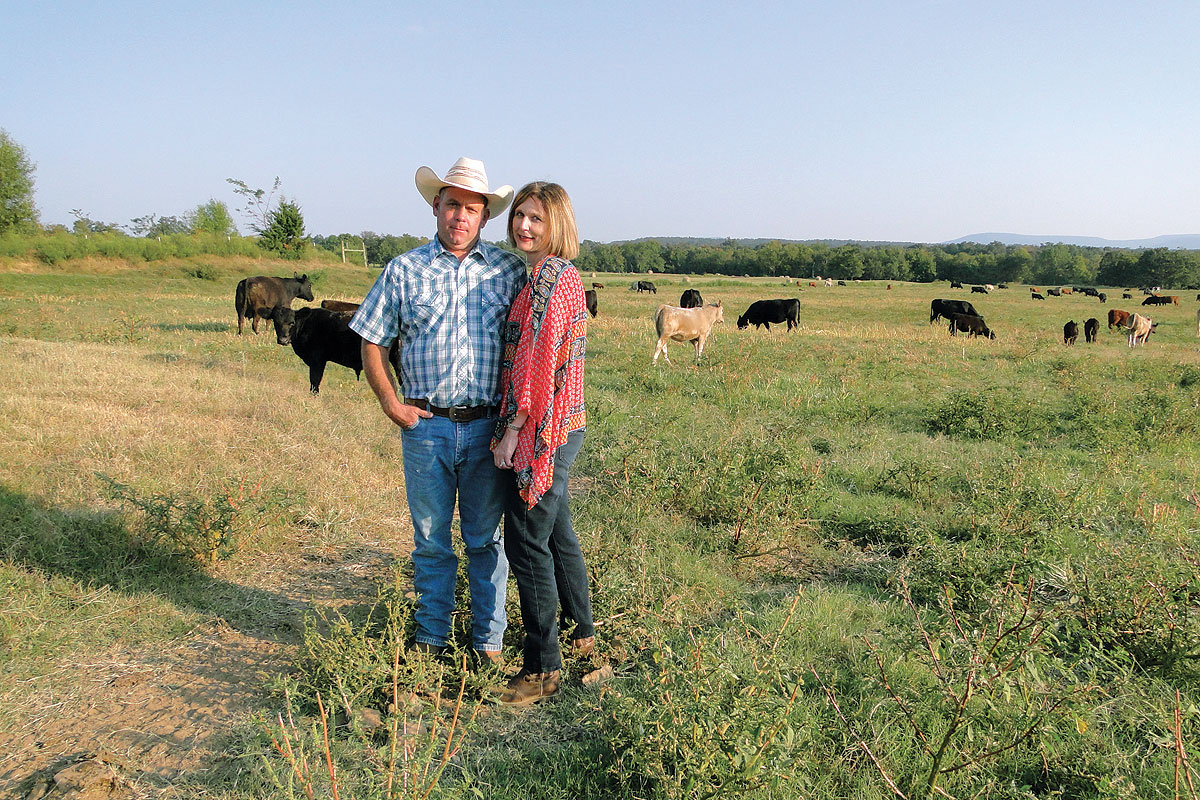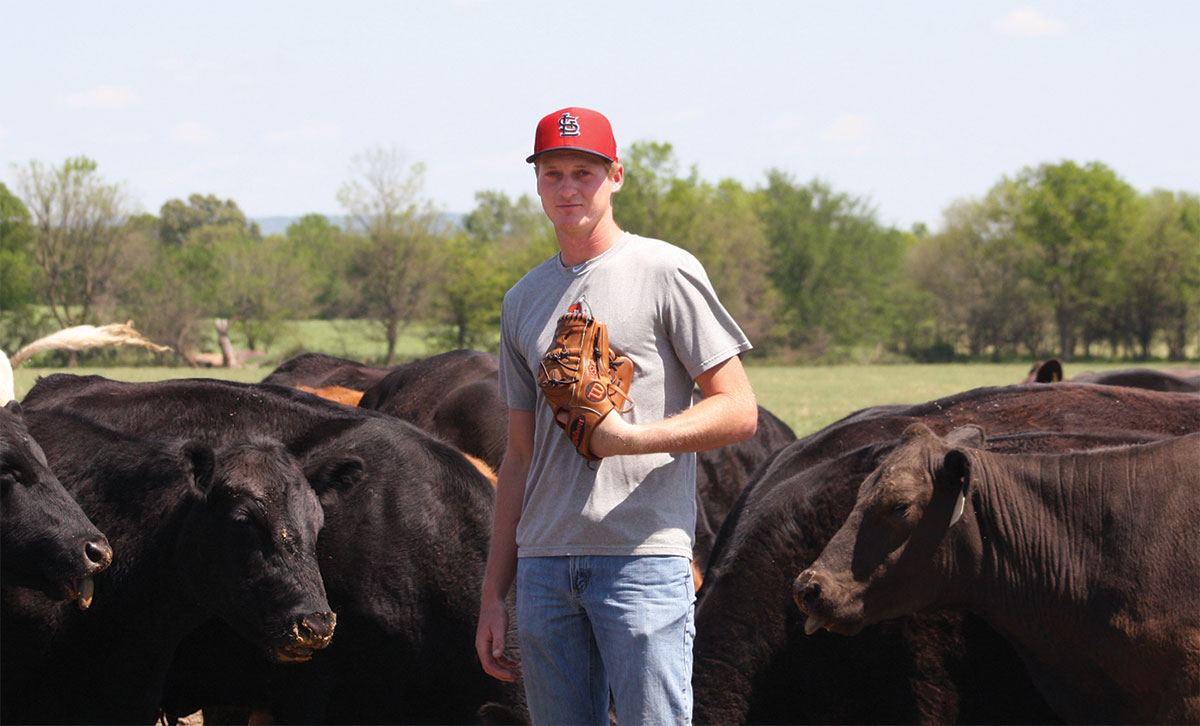
The Efurd family transitioned from a dairy operation to beef cattle and poultry
Jackson Efurd ran a dairy in Gentry, Ark., but moved to his father’s farm in Dayton Community in Huntington, Ark., in 1976, bringing the dairy with him. Jackson and his son Shawn ran the dairy until November 2000 by which time each already had two chicken houses and shared a commercial herd on an expanded farm.
“My dad and I thought it was time for a change,” Shawn explained. “Regardless, I still have five or six Holsteins here as a reminder of our heritage, which means they will die here as part of our herd.”
Jackson’s chicken houses were destroyed in an ice storm; fortunately, they were empty. Though Jackson elected not to rebuild, Shawn remained in the chicken business. He added LED lighting in 2016 and retrofit cool cells in 2000 with the latest updates being changing out the brooders and adding a control room to each house. Waterers and feeders, on the other hand, have proved to be durable and remained the same.
Chicks arrive at one day old and remain for only 36 days, by which time they weigh 4 pounds. These birds are used for Tyson specialty items such as nuggets, breast strips and chicken wings.
When the birds leave, the houses are vacant for two weeks. An entire industry is devoted to clean out, and Shawn has the litter tilled between annual total cleanouts and timing is determined by whether, bird conditions and Shawn’s fertilizer needs rather than by the calendar date.
Shawn also follows all Tyson health protocols. These include boots solely used in the chicken houses, foot pans with disinfectant powder and allowing only the field man inside when absolutely necessary.
“I like chickens and Tyson has been good to our family,” Shawn said. “Tyson not only provides help whenever we need it but also a way of life for us.”
Efurd Farms also runs a medium-sized cow/calf commercial herd bred by registered black and Red Angus bulls.
“We are running as many cattle as the land can comfortably support. Using chicken litter as fertilizer allows more cattle per acre than usual,” Shawn explained. “We are moving toward more Red Angus because those cows seem calmer and I like how they and the calves look.”
Male calves are banded the day after birth. Market calves are weaned at 450 pounds, while those heifers retained as replacements and to improve genetics are not weaned until 7 to 8 months old. These heifers are also fed 2 pounds of a 14-percent protein commercial feed per day. All cattle have free choice mineral, as well as hay when needed to support grazing during weather extremes.
One of the advantages for cattle/chicken farms is the opportunity to use chicken litter as fertilizer which increases the quality and quantity of grass and hay one of Sean’s techniques is to spread ryegrass and clover seeds over the litter followed by a clean out spreading the litter so one application completes two tasks. Efurd Farms’ land is divided into larger pastures used for both grazing and haying with a modified rotational plan. In a typical year Jackson and Shawn shoot for 600 bales and had 120 carry over left from last year.
“My biggest time challenge is summer during haying season while my biggest weed challenge is windborne thistle and cockle burr seed,” Shawn said.
Water sources are split between ponds, wells and city water. Cows use the ponds to cool off and drink well water in tire tanks treated with a large chlorine pellet for algae control. Shawn has found this more effective than fish, which is another popular method. The chickens, on the other hand, have city water because it is better for the chickens and allows the cool cells to function optimally.
Shawn and his wife Audra met through mutual friends. Their first date was dinner at Olive Garden, followed by a round of mini golf. According to Audra, they enjoyed each other but felt their worlds were too far apart for a meaningful relationship. Shawn was country and she was city. The differences were highlighted by the fact that Audra was an elementary school counselor while Shawn farmed. What they discovered, however, is that they had the same goals and values and that what appeared unworkable differences on the surface hiding a true compatibility.
One of their common values was a belief in being civically active in their communities as a way of giving back for all they had been given by God. A side benefit from volunteering their time was contributing to policy development rather than simply being directed by it. Shawn is on the Sebastian County Conservation and Farm Service Agricultural boards, as well as being the assistant dairy superintendent for the Arkansas Oklahoma State Fair. He and Audra are on the Sebastian County Fair Board. Once Audra took a group of 4-H members to Washington D.C., where she was highly impressed by Congressman Womack who went far beyond what was expected to make their time with him special in a lifetime memory. Audra also belongs to the Arkansas Counseling Association and the Clearinghouse Guild which provides snack packs for food challenged youngsters.
Recognizing their contribution to the community and the success of their farm, Shawn and Audra were awarded the 2014 Sebastian County Farm Family of the Year. The best reward came when they were allowed to foster and eventually adopt a daughter.
First Malaki became the only and therefore very spoiled grandchild in the family and soon thereafter an active 4-H member whose first project was showing a rabbit at the county fair. This was definitely a good experience for all three of them.
“God and circumstance put us together and all of us are reaping the benefits,” Audra said.






